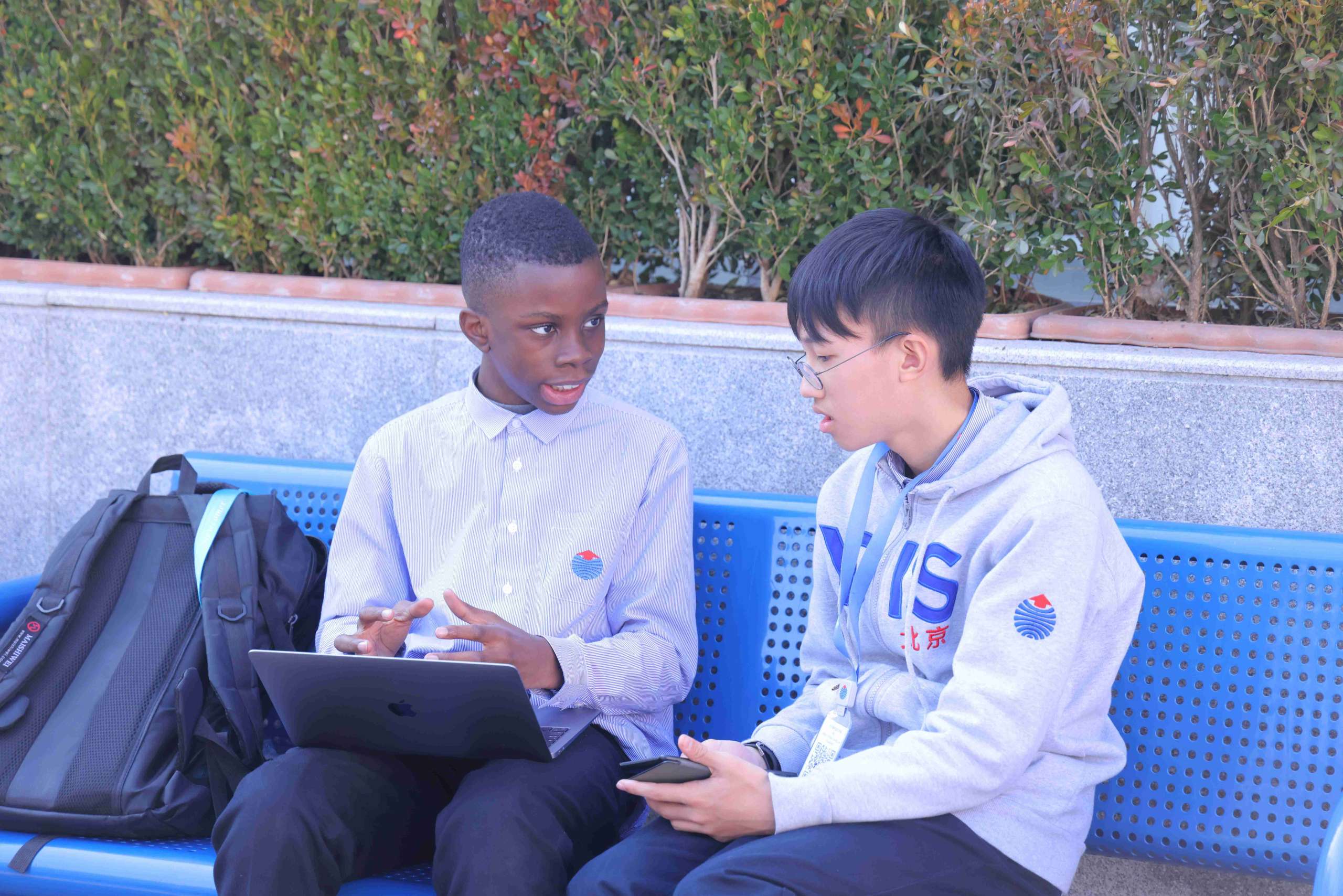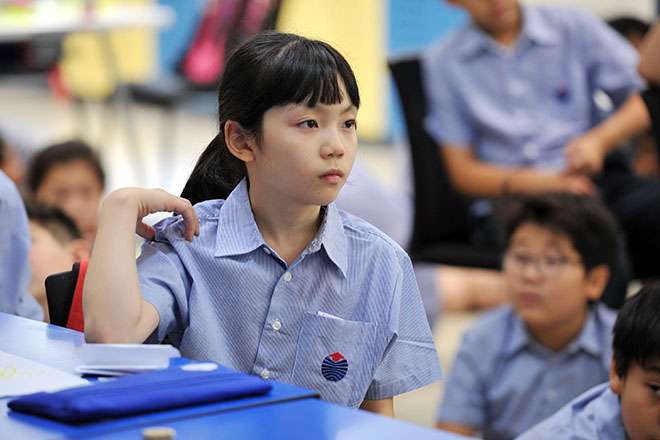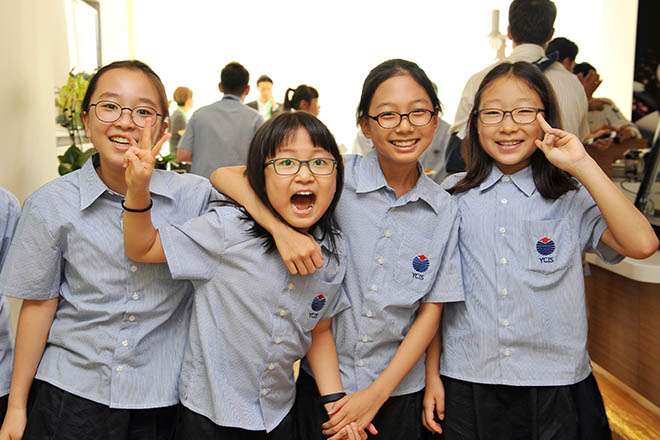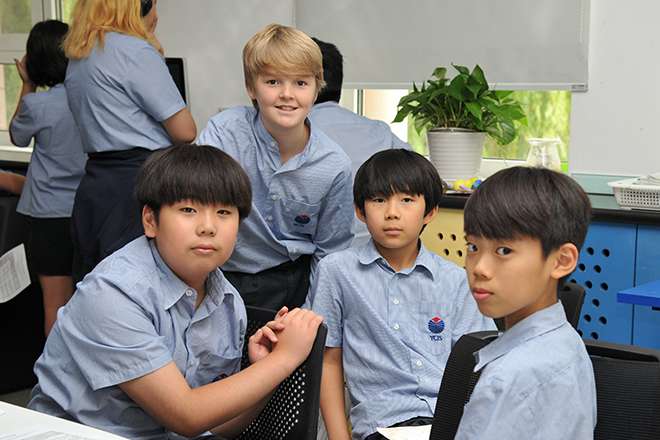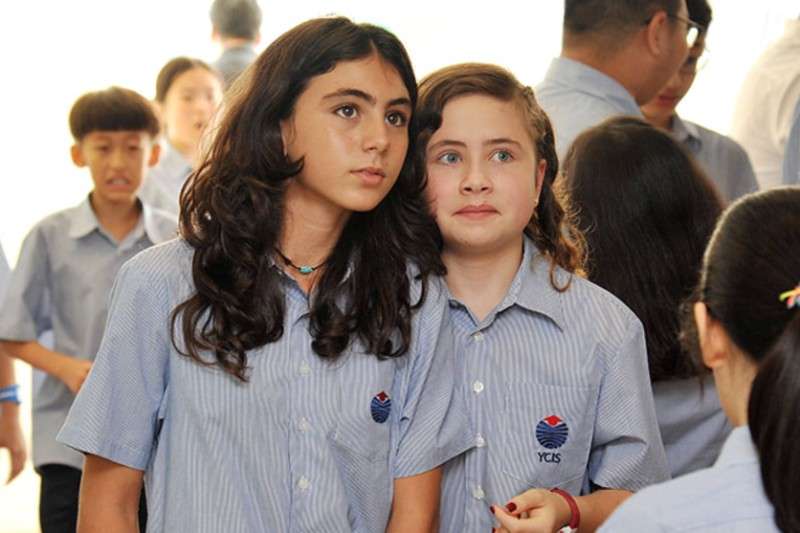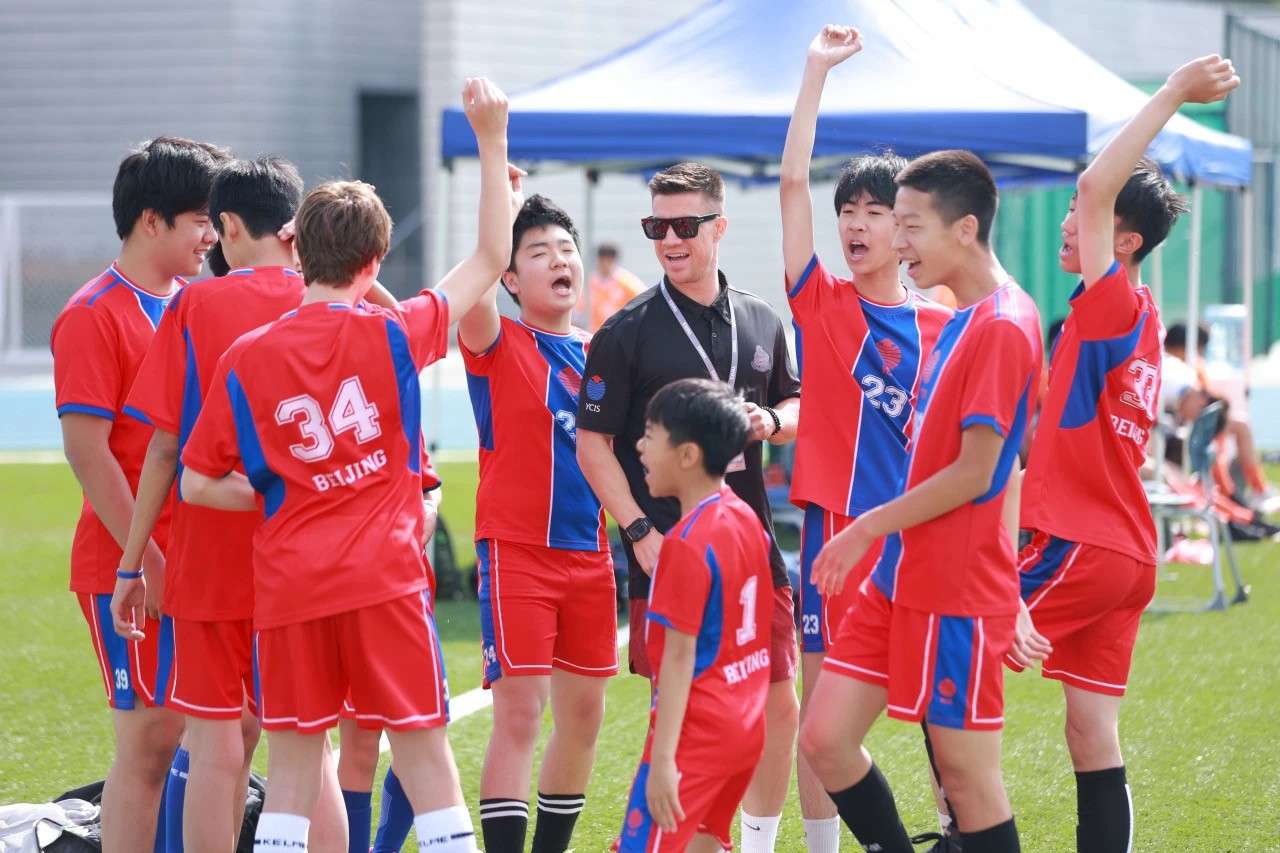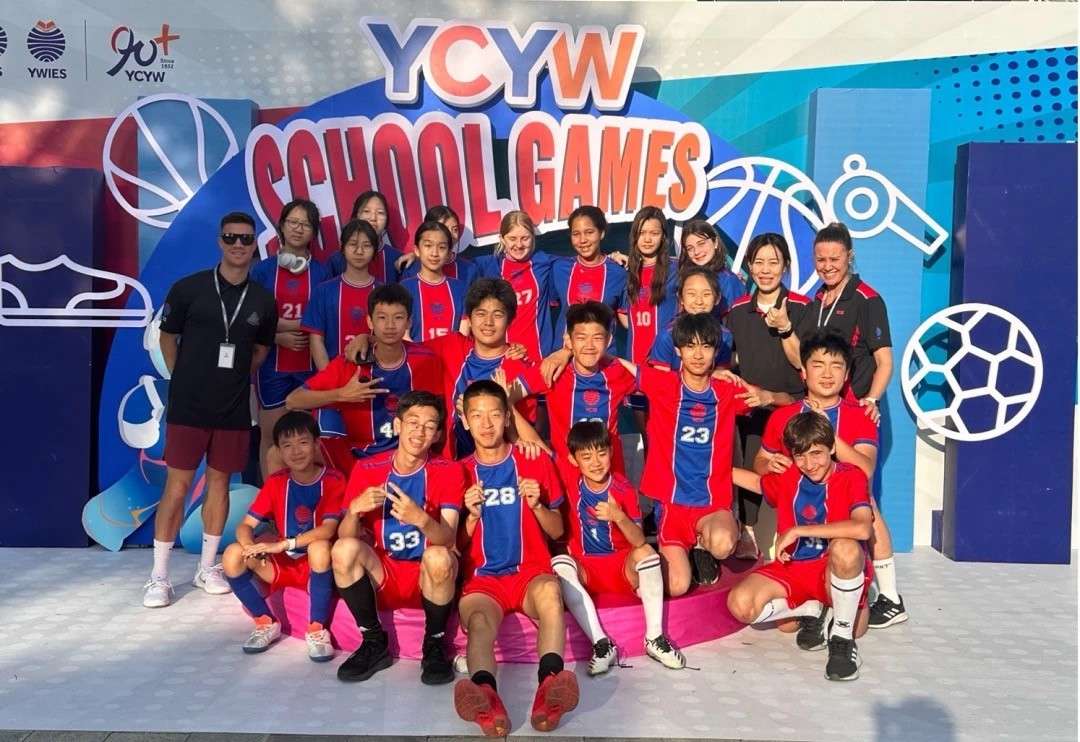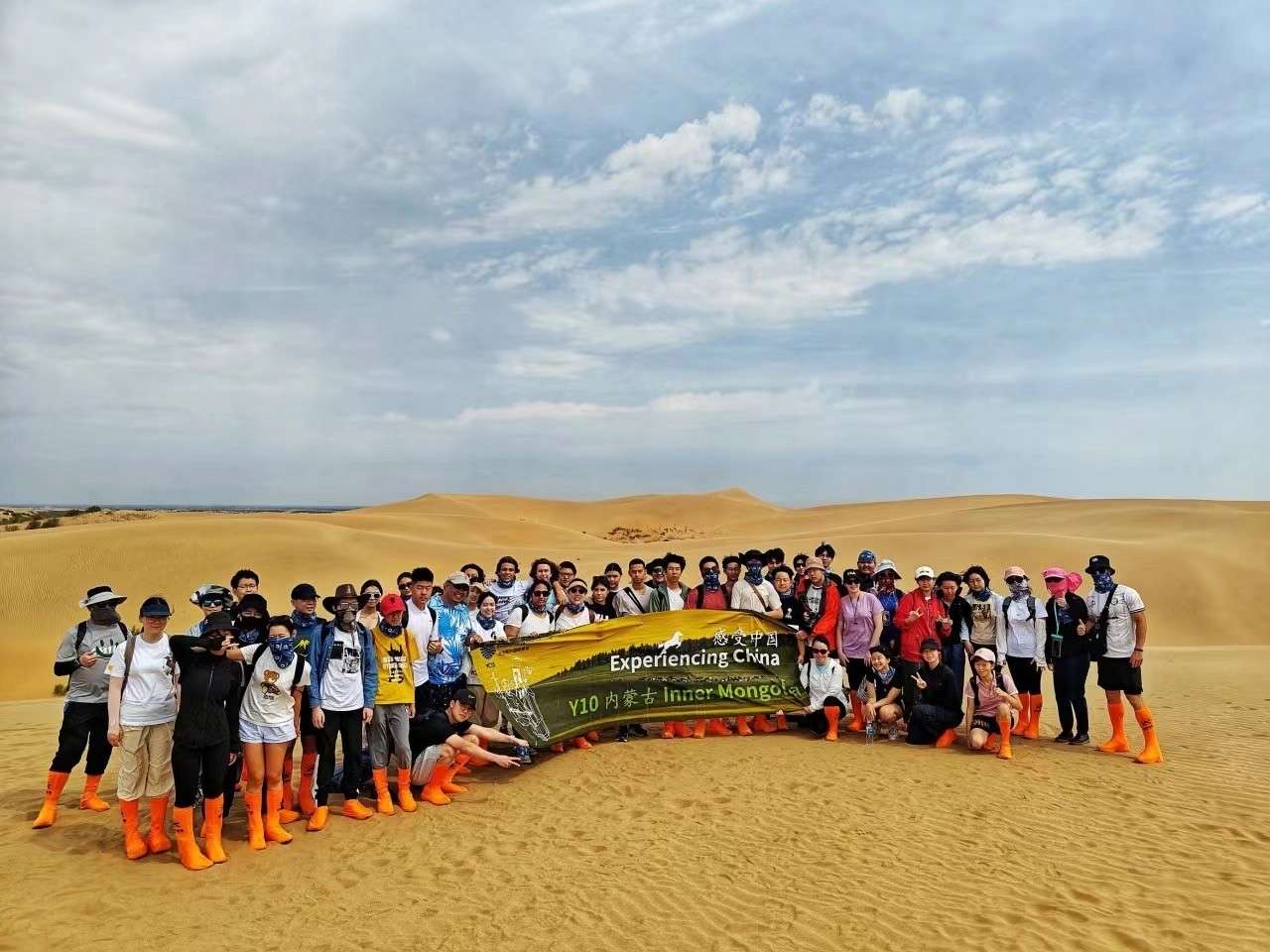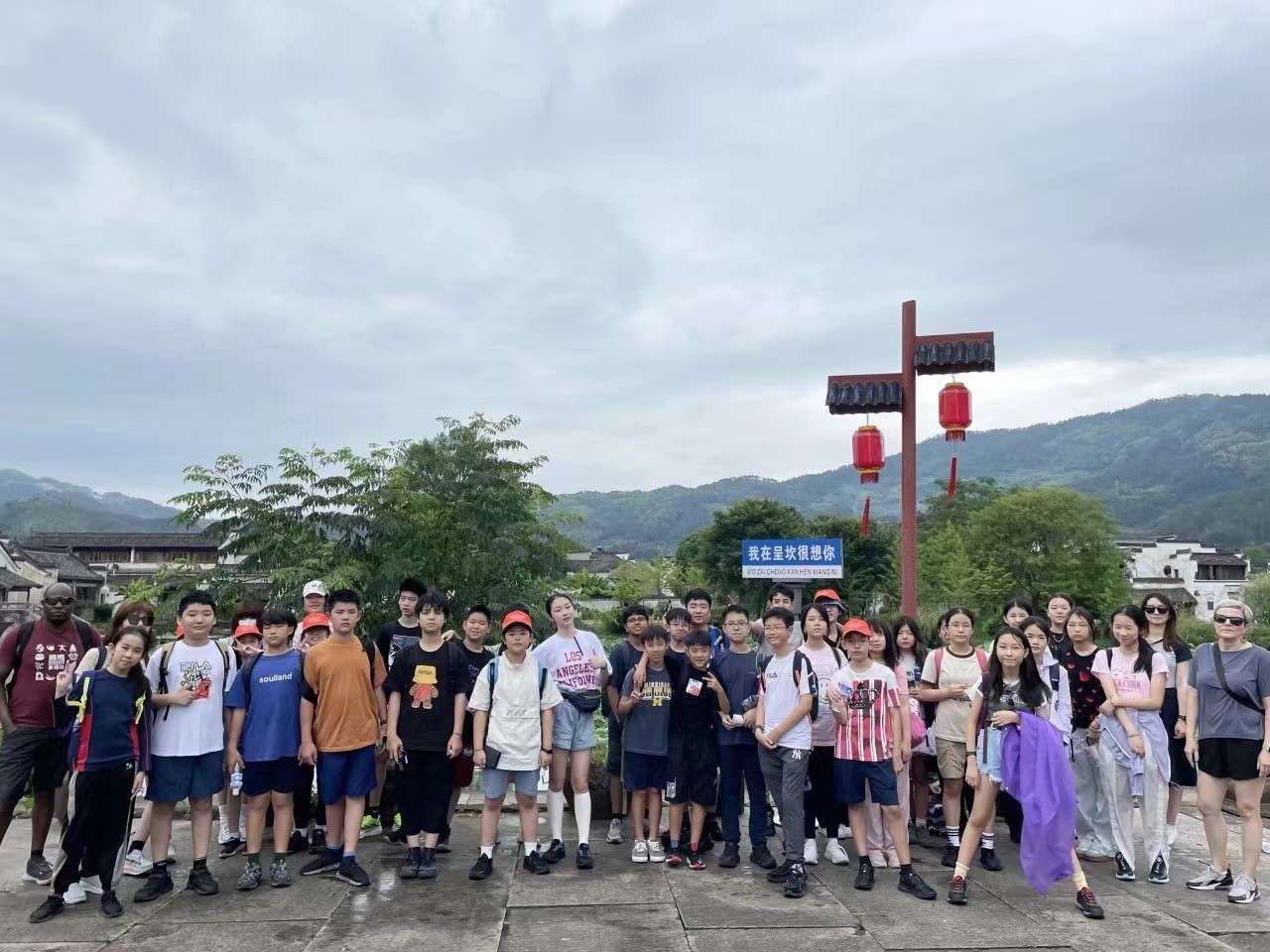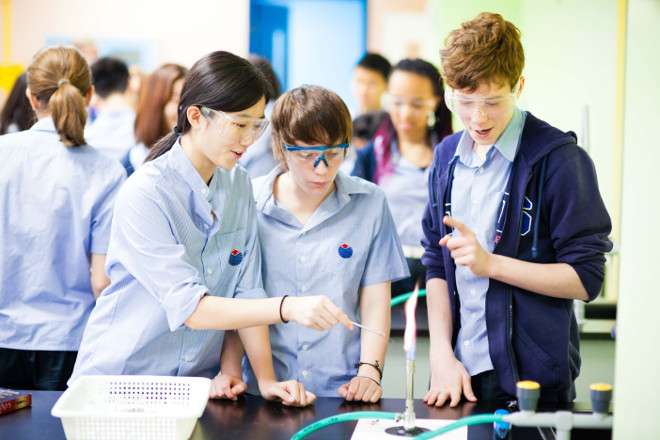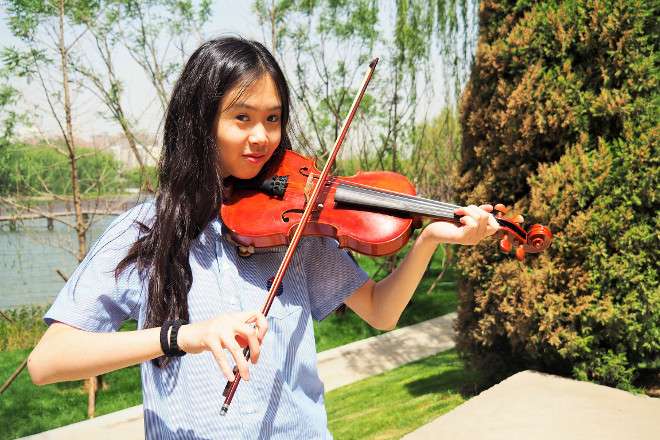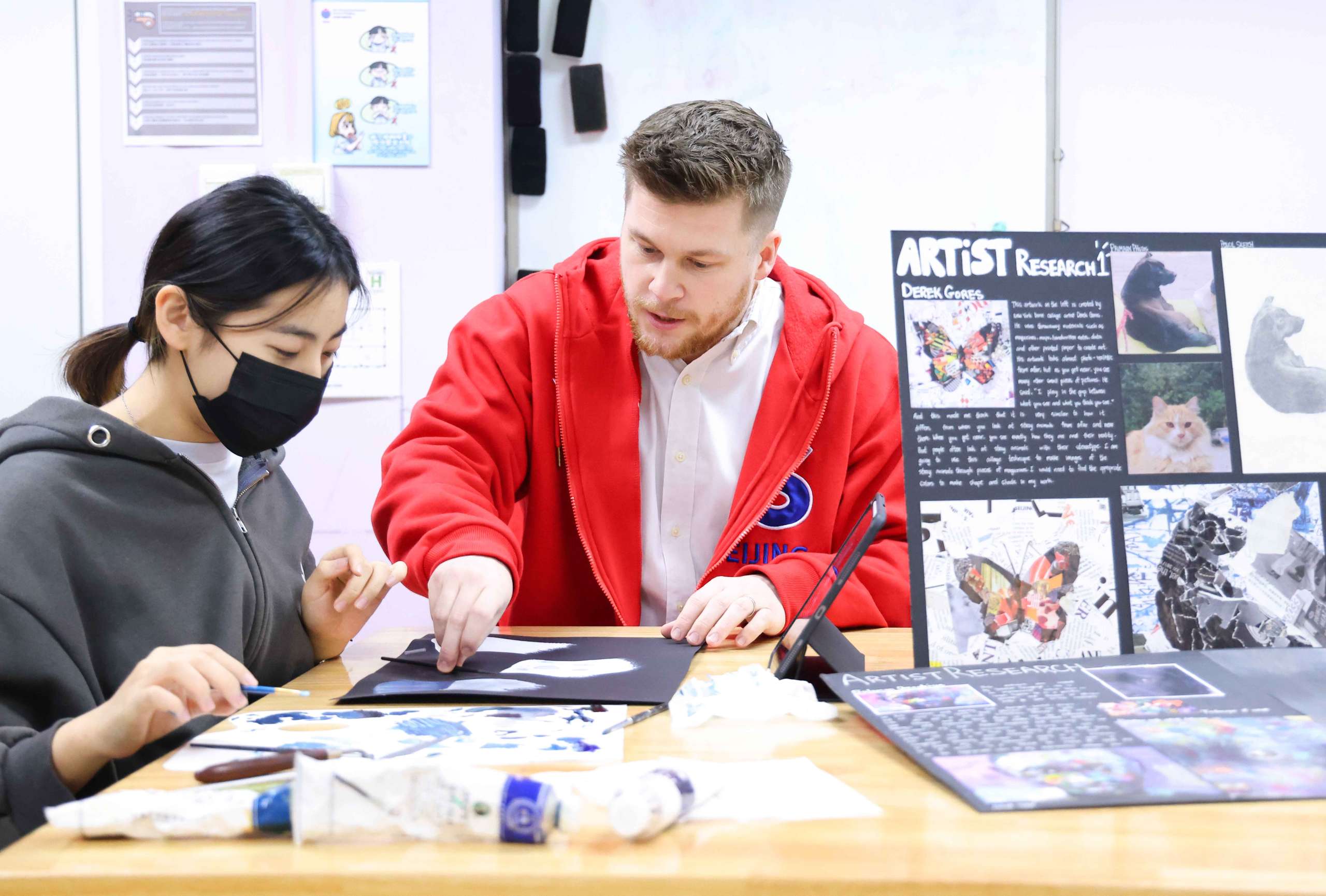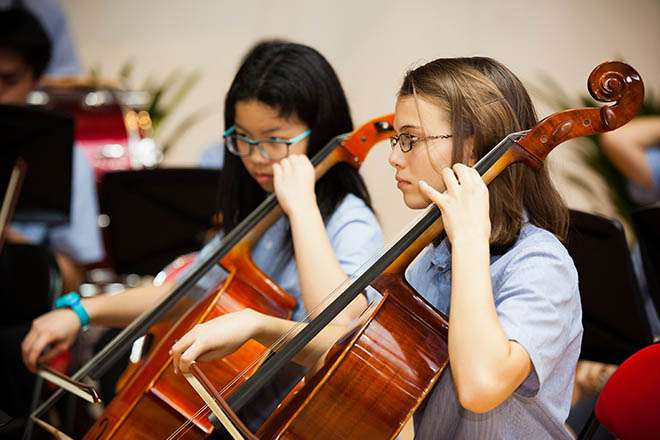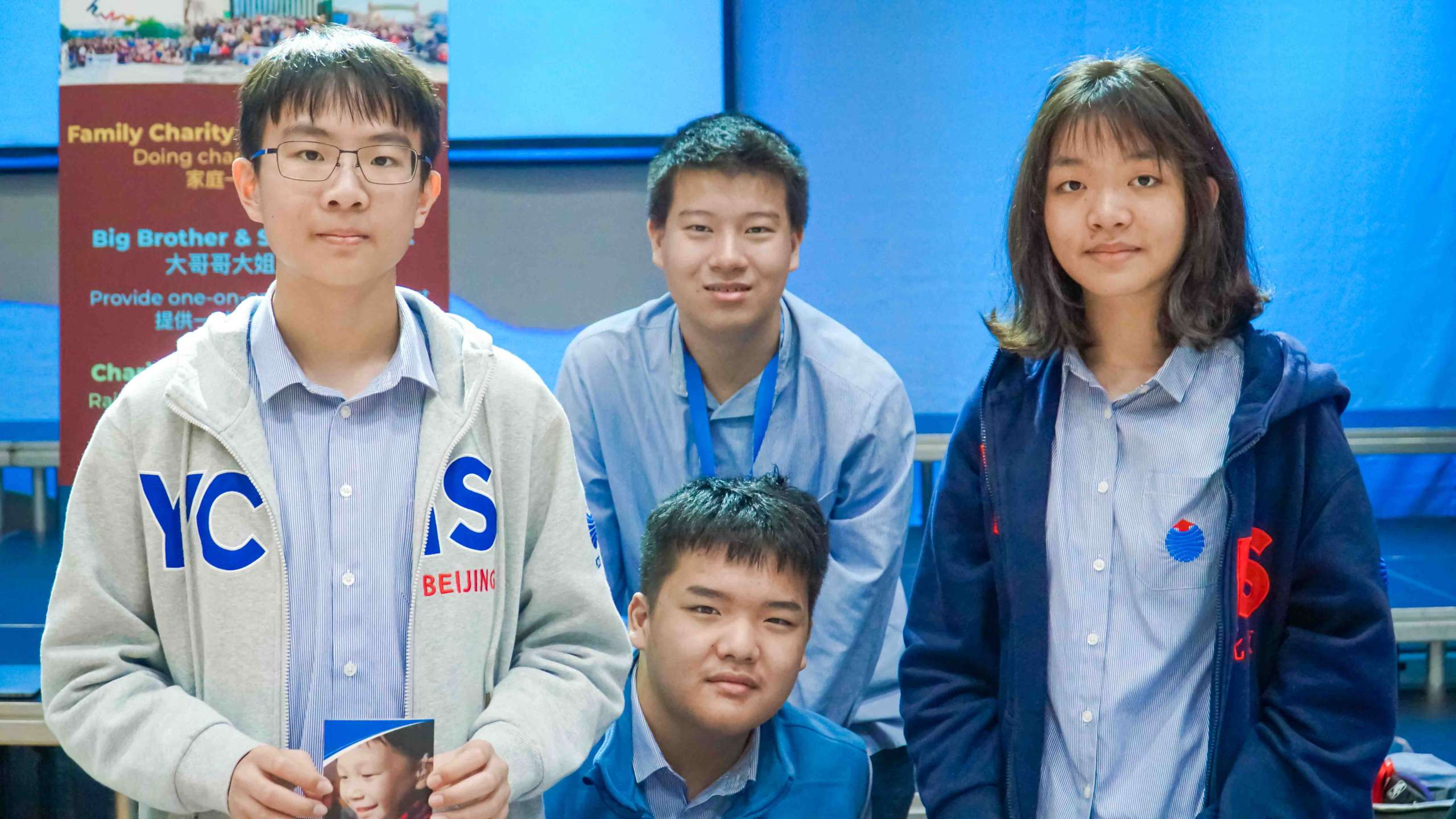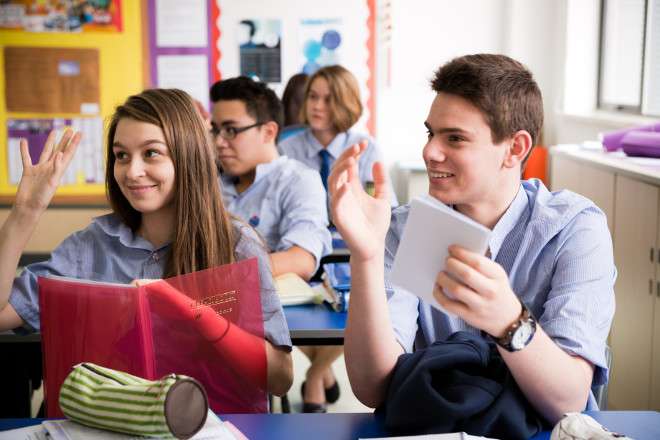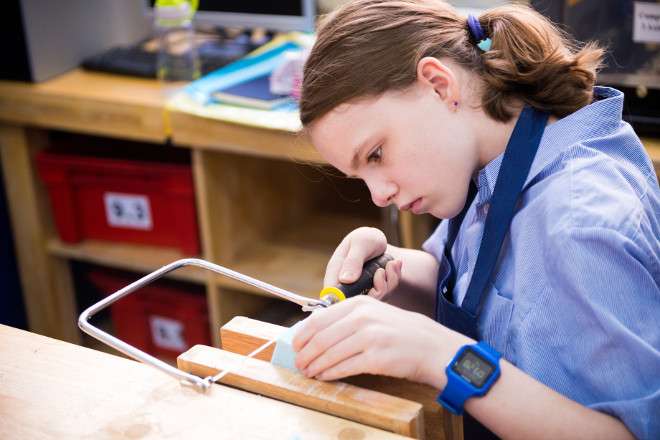Secondary
A whole-student approach to curriculum.
On their path to university, YCIS secondary students journey through the Yew Chung Curriculum (Years 7-9) – a bilingual, international curriculum written by experts from the Curriculum and Professional Development Division, the International General Certificate of International Education (IGCSE) Programme (Years 10-11), and the International Baccalaureate Diploma Programme (IBDP) (Years 12-13).
This is a modal window.
The Best of Eastern and Western Traditions and Subjects
YCIS Beijing students experience a bespoke, research-based international curriculum that merges the best of Eastern and Western traditions and subjects. The curriculum provides students with an authentic immersion into Chinese culture within an international and global school framework.
This allows us to approach study projects from a global perspective, foster cultural respect and develop fluency in two major world languages of the 21st century - English and Chinese. We also place great value on character development and provide various activities such as art, music, sports, charity and leadership opportunities to capture students' interest at all levels. This is what we refer to as "global education".
We pride ourselves in preparing our students to become adaptable enquirers and multilingual global citizens ready to take on esteemed positions within society.
Re-thinking and Re-imagining Schooling
YCIS Beijing is re-thinking and re-imagining schooling in order for students of the connected generation to be well-equipped for the demands of study and work that awaits them. This means redeveloping learning spaces, removing walls and changing traditional classroom furniture. But this is only part of the process. We are also changing how teachers and students connect, share and create.
The Early Childhood Centre and the Primary School have new open-plan areas. Each has also developed strong learning communities where learning is connected and engaging. Both are clear examples of why the shift is the best preparation for Secondary School.
We have a proven track record of excellent educational results in the IGCSE and International Baccalaureate Diploma Programme. Moreover, our students invariably go overseas to study at top universities across the world, including:
- Oxford University
- Cambridge University
- University College London (UCL)
- New York University
- Rhode Island School of Design
- Yonsei University
- Seoul National University
Excellent educational and academic achievement is at the core of our approach.
Great success begins with excellent preparation, and learning in the lower secondary levels is important in its own right. It sets the groundwork for students to continually improve their capacities to think critically and creatively, manage their time, deliver tasks as required, and to work well with others. Our students are equipped with the necessary skills to overcome the challenges of an uncertain future.
For information about our Secondary School Profile, please click here.
At Yew Chung International School of Beijing, we are creating Learning Communities that increase students’ sense of belonging; create time and space for student-directed learning; refine assessment practices, and allow more opportunities for students from different year levels to work together. The traditional classroom arrangement of students sitting at desks in rows is disappearing and we are helping teachers and students to connect, share, create and reflect more effectively.
We have created Learning Communities around Years 7-9 as it offers us an increased capacity to effectively transition students from Primary to Secondary. The significant increase in teacher collaboration has allowed greater sharing to emerge, improved understanding of the needs of the students, and a focus on getting improved alignment of:
- Topics
- Associated Vocabulary
- Learning Strategies
It has also increased our ability to identify and remove any unwarranted repetition. Additional support for both English and Chinese languages and an increase in time allocation for Physical Education provide an excellent balance of curriculum offerings. The introduction of G100 (100 minutes of Genius Hour negotiated projects) creates the opportunity for students to pursue an area of interest either independently or in a small group.
The creation of Years 7-9 Learning Communities offers the chance for specialist teachers to work with Year 6 students and for these students to access the specialist resources of Secondary. It is another element to the transition of students into the Secondary environment where the learning occurs in a different context from Primary School: more movement into different learning areas, more teachers having input and a greater responsibility and accountability for learning achievements. For learning to resonate, it must meet certain conditions. It must recognise prior learning and it must connect to knowledge, skills and understanding already achieved. Students must be asked to transfer these elements to a new challenge, and the narrative placed around the tasks must connect to the real world as the students perceive it.
We wish to encourage a much greater connection between home and school. It is important that parents/guardians are familiar with the key tools that provide them with information on their child's learning. Managebac (MB) is used by both teachers and students, and parents also have access. It is possible to track work and deadlines, and contact teachers all through Managebac. The WeChat updates are a good way to start discussions with children on what they are doing in school. Students will be using digital portfolios and student-led conferences to demonstrate their commitment to learning and level of success achieved, and share goals for future learning tasks.
The manner in which the teacher constructs the learning is critical for the level of engagement and stimulation of the student’s curiosity. Authentic learning and authentic assessment is never easy to achieve. This is especially so when schools have a history of disconnected teaching where the emphasis has not been on ensuring there is a clear meaning and link to the real world. Nor has there been a consistent desire to find ways to link the learning to physical, social or emotional worlds in which the students operate.
The level of understanding we now have about the way students learn and the conditions required tell us that we have to shift, bend, and shatter the traditional school model. This needs to occur if we are serious about developing in students the capacity to operate successfully in a future that requires not recitation of information but rather the transferable and transformative abilities that both further studies and future workplaces will require. This means that critical knowledge, skills and understanding relate to capacities of:
- Critical Thinking
- Problem-solving
- Creativity
- Collaboration
- Self-efficacy
- Empowerment
We have to nurture the self-confidence and leadership capacities of students through challenges, but achievable challenges.
The Physical Education Department provides an exciting and engaging learning experience for all. Through offering a wide range of courses and activities to all year groups, we encourage our young people to take ownership of their own physical, emotional and mental well-being by building their knowledge and understanding of diet and exercise.
Pupils will partake and be assessed in a range of activities throughout their time in the Physical Education department. These include, but are not limited to, football, volleyball, basketball, gymnastics, swimming and fitness.
Through all of these experiences, our students will also develop skills needed for learning and working in life.
Pupils who are skilled and motivated enough may sign up for our IGCSE Physical Education course. This course develops students' physical skills in addition to their knowledge and understanding of sports and exercise. Pupils who succeed in this course may be interested in working in careers such as sports scientists, PE teachers, physiotherapists, sports coaches/consultants, diet and fitness instructors, etc.
The Experiencing China Programme sends our Secondary School students to various parts of China to gain first-hand experience of life beyond Beijing. Students visiting iconic sites related to Chinese history and spending time with people living in a rural environment, acquire new understanding and appreciation of the host country. Students learn much from one another as they travel to and from Beijing and learn together through lectures, practical workshops and challenging activities such as mountain biking and Shaolin Temple Kung Fu.
The Habits of Mind and Visible Thinking Strategies help students stay on path to effective learning. The Habits of Mind provides a way to remind and support students as they journey through the educational landscape: managing impulsivity which is a challenge for many people; applying knowledge to new situations; striving for accuracy; metacognition, and perseverance. Visible Thinking Strategies also provides a framework for students to solve problems in different ways. The DeBono CoRT format opens up a thinking process that allows students to think differently.


